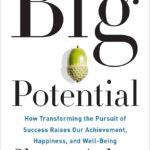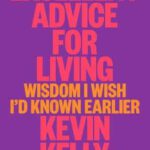Reading Time: 2 min In listening to the Founders podcast, one big theme runs through almost every story that is shared — the founders become incredibly wealthy, but lose their marriage, children, and/or health as a result of it. An example is Larry Miller, who owned the Utah Jazz. He had it all, but he had nothing. From the […]
Encouragement
Just a little bit can ruin your day
Reading Time: < 1 min It’s amazing how little it can take to put us in a bad mood. This can come from other people, but it can also come from just a bit of negative news. In his book “Big Potential“, author Shawn Achor shares this surprising bit of insight: “Indeed, we found that just a few minutes spent […]
Of course other people can change us
Reading Time: 2 min We hear a lot about how “no one ever changed their mind because of a Facebook post”, something that I’ve disagreed with for years. While it’s very unlikely that a Facebook post will change my mind, if someone that I trust and respect posts something contrary to my beliefs, I will dig in to understand […]
What are you good at that other people find difficult?
Reading Time: < 1 min A few days ago I was listening to an episode of “Art of Investing” where they interviewed David Senra. David had a lot of great insights, largely about what makes his own “Founders” podcast tick, but one that stood out was this quote: “There is something that everybody in here is good at that other […]
What the web is versus what we want it to be
Reading Time: 2 min In recently listening to a podcast from Gary Vaynerchuk, I realized how differently him and I see the world. While I respect what he does, and I follow a lot of his advice, it comes from a different direction. In particular, Gary provides a ton of great ideas on how to generate increasingly large amounts […]
Bad days are better measures than good ones
Reading Time: < 1 min We’ve all heard the phrase “if you can’t handle me at my worst, you don’t deserve me at my best“, but it seems to me to be more of a red flag than actual advice. How someone behaves “at their worst” is often what matters the most. A few years ago I talked about people […]
Time traveling through your notes
Reading Time: 2 min I’ve only been taking solid daily notes for about four years now; that may sound like a lot, but compared to many folks it’s not much at all. One of those that has been doing this far longer than I have is Ryan Holiday, some of whose books you’ve likely read. He recently shared how […]
You control the pen
Reading Time: < 1 min I recently read the excellent book “Banana Ball“, the story of the Savannah Bananas baseball team. I was well-aware of the team, but have yet to attend a game and the book was fantastic. One part of the book talked about the Negro baseball league and how it was always underappreciated. It’s been more appreciated […]
Work-life balance versus simple tolerance
Reading Time: 2 min Work-life balance is one of those things that can be interpreted in many different ways. Generally speaking, I find that balance not to be in a perfect 9-5, 50/50 kind of way, but in balancing the various parts of your life as needed. Last year I shared Rory Vaden’s thought on this, where he said: […]
Grateful in the macro and the micro
Reading Time: 2 min When you ask someone what they’re grateful for, you often get the same kinds of things – health, family, friends, etc. Those are all wonderful things, and we should all be grateful for them, but being grateful for smaller things can sometimes have a bigger impact. In a recent episode of “My First Million”, the […]







